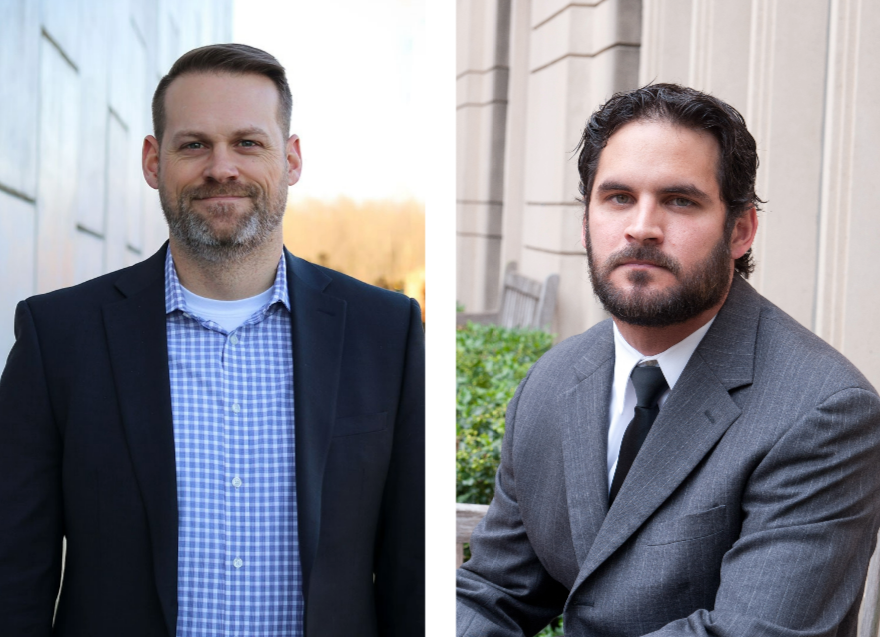MPower Grant Concludes with National Institute of Justice Award

Published in CHHS Fall 2023 Newsletter | November 15, 2023
In 2022, the University of Maryland Center for Health and Homeland Security (CHHS), in combination with the University of Maryland, College Park’s National Consortium for the Study of Terrorism and Responses to Terrorism (START), was awarded a competitive grant to evaluate the efficacy of federal criminal law as it relates to domestic terrorism. The purpose of this project was twofold: first, to evaluate how current federal criminal law is applied to domestic acts of terror and hate crimes; and second, to postulate what potential federal legislation could look like in addressing these threats, including the impact that it could have on civil liberties. START was responsible for evaluating the former and CHHS the latter. This arrangement has now ripened to produce promising results.
Before discussing the latest developments, it is important to note how the University of Maryland Strategic Partnership: MPowering the State (MPower) enabled this collaboration. MPower is a state initiative that seeks to leverage expertise housed at the University of Maryland, Baltimore and the University of Maryland, College Park by offering competitive grants that foster relationships between these institutions. Applicants must submit a research proposal to address an area of study focused on current national and state issues. Most approved projects, historically, were intended to result in the development of new technology, which made it especially gratifying to have the CHHS-START collaboration approved for an award that focused exclusively on law and policy.
CHHS’s Academic Program Director Michael Vesely served as principal investigator, along with START’s Senior Researcher Dr. Michael Jensen for this project. Vesely evaluated the various bills that have been submitted to Congress over the past decade, how far these bills made it through the legislature, and what their potential for future passage might be. He also evaluated how future legislation might target the threat of domestic terrorism by analyzing who these laws could be based on, the material support statutes within a domestic context, as well as how these laws might target Internet usage in furtherance of these crimes. Finally, Vesely analyzed the impact that these laws could have on constitutional rights.

For his part, Dr. Jensen evaluated and employed the Profiles of Individual Radicalization in the United States (PIRUS) database to understand discrepancies in charges filed, outcomes obtained, and sanctions imposed in international versus domestic terrorism prosecutions. Jensen’s methodology enabled him to account for dozens of factors, including race, gender, and prior criminal history, and incisively demonstrate that there are dramatically different outcomes in prosecutions of instances of international and domestic terrorism.
This project generated an enormous amount of data with startling results. The START team concluded that “significant, and often extreme, sentencing disparities are endemic to U.S. federal terrorism prosecutions.” These disparities are driven by an “uneven use of federal terrorism laws,” but are also exacerbated by “judicial biases that cannot be attributed to the current legal regime alone.” This means that new domestic terrorism statutes might not alone be sufficient to address these disparities.
CHHS also generated preliminary results regarding the potential for new legislation and concluded that it was unlikely that Congress was unlikely to pass domestic support statutes, and that even if it were able to do so, it probably should not at this point due to various constructional issues. However, CHHS only offered these as preliminary findings as further research is needed. Moreover, prudence suggests allowing more of the January 6th prosecution to reach a final disposition. At the time of writing, several prosecutions of those in leadership positions of organizations leading the insurrection were just reaching trial.
This could have been the end of this work, but MPower grants are intended to operate as “seeds” which, if leveraged properly, can continue to bear results long after the initial award has been expended. Fortunately, that is exactly what has unfolded. As the MPower performance period approached its terminus, the CHHS-START teams were able to apply for a National Institute of Justice (NIJ) grant that focuses our initial research within the context of federal sentencing for terrorism offense. NIJ operates within the auspices of the Department of Justice and seeks to provide science backed analysis to advance justice in the United States.
This new project will follow a similar division of labor between CHHS and START, where START will continue to refine the data generated from PIRUS to account for numerous variables that impact sentencing outcomes, whilst CHHS will provide legal analysis that focuses on constitutional issues related to these discrepancies. Though the performance period has not formally begun, the project is slated to run for 2-3 years enabling us to focus our research and hopefully move our recommendations from preliminary to conclusory. Given the timing, new influx of resources, support from UMB and UMCP, as well as the institutional expertise of CHHS and START, we have every confidence that we will be able to achieve this goal.



